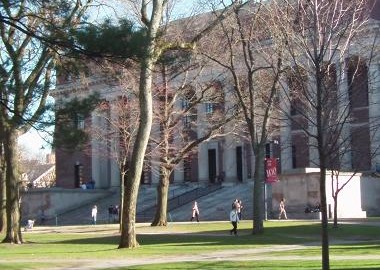Why Admission to a Top College Is So Difficult
Ivy League and other top-tier colleges have become so selective in admissions that many now accept less than 10 percent of applicants. In fact, some schools receive more than 35,000 applications for about 1,300 incoming freshman spots. Acceptance into the Ivy League has never been easy, but admission is now exceedingly difficult as a result of intense competition.
The explanation lies not in the size of freshman classes, which has been steady for decades, but rather in the spike in overall applicants as an outcome of several trends.
Much of the growth arises from the increase in population in general but more specifically to the nationalization of demand. Top-tier colleges once appealed primarily to students in a particular region of the country. Because the supply of schools has stayed the same, the demand for their brands as indicators of high educational value has grown. There is now a national pool of highly qualified students who apply to elite schools regardless of the applicants’ locations.
There has also been a sharp increase in applicants from other countries. American universities are renowned worldwide, and international students seeking the best education are attracted to them for their prestige. Young people from countries with limited post-secondary educational opportunities such as China are especially drawn to schools in the United States.
Another factor that has intensified competition is the Common Application, which has successfully streamlined the burden of applying to multiple colleges. Although many schools may require their own supplements, the Common Application integrates core elements and greatly simplifies the process. This model has led many students to apply to up to 20 schools just by checking extra boxes on the form. This has inadvertently added to admissions competitiveness.
The most popular college ranking sources, including U.S. News & World Report, have also substantially influenced the competitiveness of admissions. Their ranking criteria reward a high level of “admissions selectivity,” as defined as accepting only a small percentage of those who apply. By continuing to market their schools aggressively in order to encourage ever more applications, the number of applicants rises while, inevitably, the percentage of applicants actually admitted decreases. The boost in rankings that this process generates may be used to help justify future tuition increases.
How can you make sure you’re competitive in the complex world of college admissions?
Present yourself and your qualifications in the best possible light and understand that, as in most fields, experts with wide and varied experience are best qualified to work the system. By receiving first-rate guidance from an IvySelect college consultant, who specializes in the intricate admissions processes of Ivy League and other top-tier colleges, you are assured that you will maximize your competitiveness while pursuing your goals in higher education.






[…] neglecting other core subjects. However, homeschooling is not, per se, an advantage in gaining admission to top-tier schools. It’s just that it’s no longer a […]